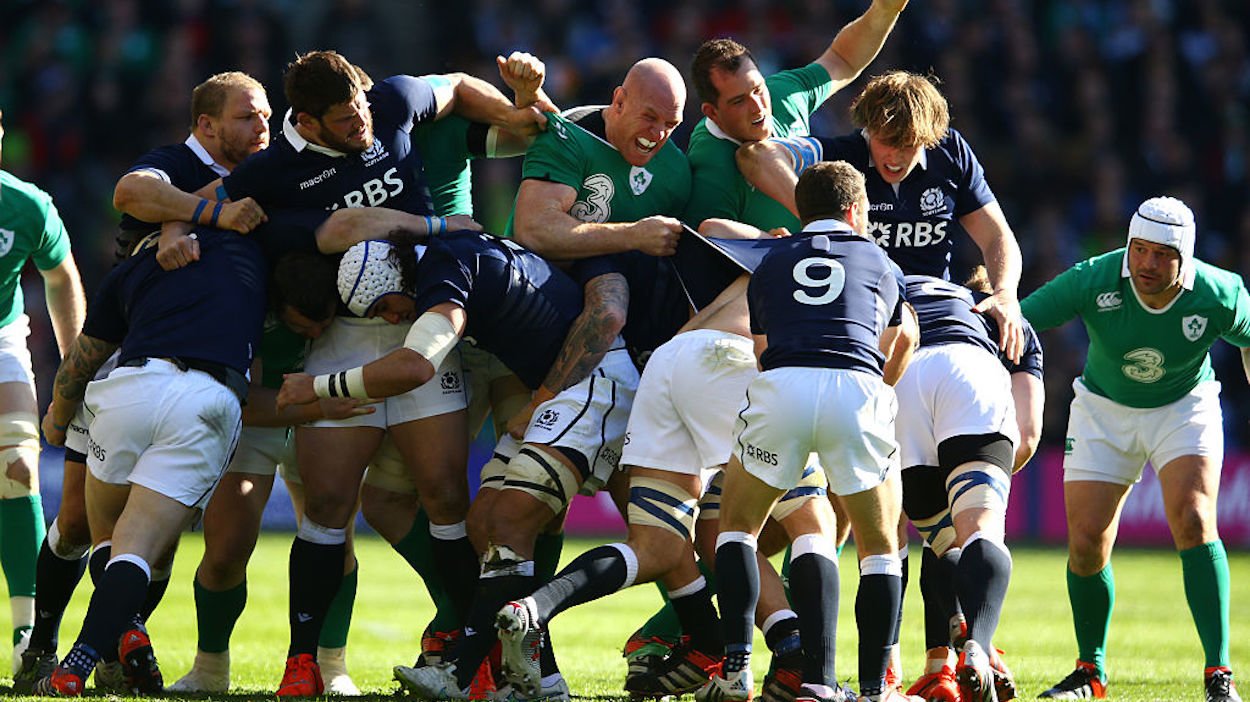After climbing a great hill, one only finds there are many more hills to climb
There’s been a real effort this week to hype up Scotland’s visit to Dublin. The Scottish rugby renaissance is once again being preached despite so many previous false dawns. The head to heads are being talked up with Finn Russell being given the role of Leonardo da Vinci and John Barclay an unlikely Michelangelo – but the painting of the Sistine Chapel was delivered over years not weeks.
So crazed has been some of the commentary, it has even been billed as Townsend versus Schmidt -the pupil versus the master. However, one thing Townsend pointed to this week is completely right. He’s been saying he needs even more from his team for the trip to Dublin, because he knows simply matching the performance levels they’ve hit so far just won’t be enough.
The Scots aren’t renowned for their optimism yet their fans seem to have got genuinely carried away with this one. It seems their vulnerabilities on display when they visited Cardiff only a matter of weeks ago have been long forgotten. Yet in three matches so far, the Scots have shipped over seventy points compared with Ireland’s fifty-something and Ireland have scored many more points too.
Factors of recent history, current squad compositions and venue all point to only one outcome.
Scottish rugby like Marti Pellow was big in the 90s -and the best Ireland managed in those ten years was a draw in 1994. And whilst Scotland might have the overall edge in terms of head to heads, since the 90s it’s largely been one-way traffic with Scotland registering only one win in Dublin in the last 17 years. The Scottish players will know that as much as the Irish players but it gives the Irish a clear psychological advantage.
Scotland may feel they have the bigger mountains but Ireland know they have the better climbers. On a basic man to man comparison of the two teams announced for Saturday’s match, it’s hard to see a Scot other than Stuart Hogg who would get into the Ireland starting fifteen -and Ireland offer more in the replacements too. That just shows how much Ireland would need to underperform and Scotland overperform for Gregor Townsend to come away with a result.
I played against Scotland twice at Murrayfield, won one and lost one. But I never played them in Dublin. And that little extra of home advantage cements the outcome for me. It fits with the narrative of recent history between the teams and it’s Ireland’s last game in front of their home support in this year’s Six Nations.
Ultimately progress is measured by perspectives. Scotland’s win over England will have been ticked off as progress and anything else will be a bonus. But for Ireland nothing short of the Championship -and maybe even Grand Slam -will be viewed as success. Scotland have done enough already -Ireland haven’t. Ireland win and roll on Twickenham.
What would be ugly in a garden constitutes beauty on a mountain










































